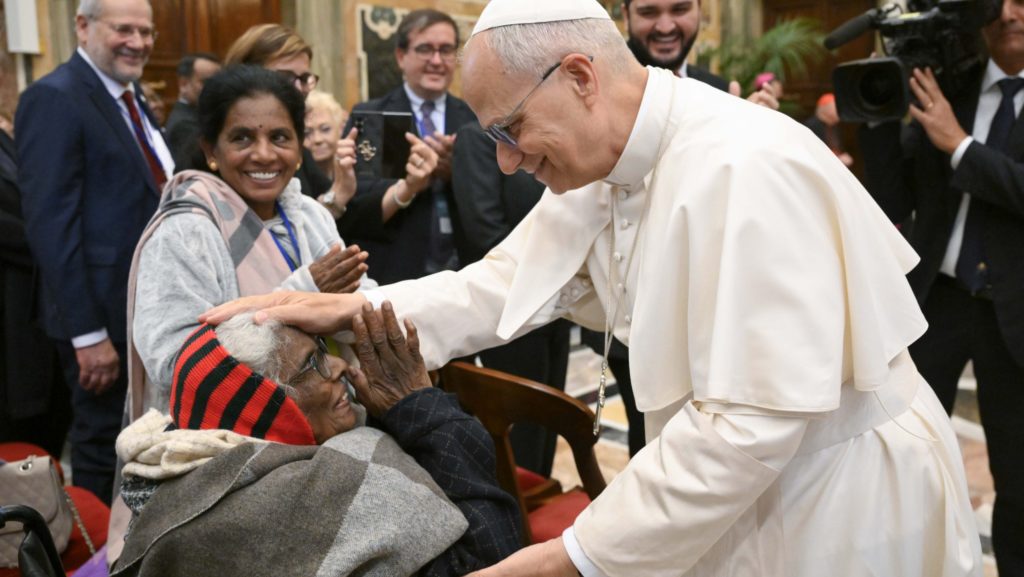Getting old is part of the wonder of creation and is a sign of hope, Pope Leo XIV said.
"Instead of being ashamed of human weakness, we will, in fact, be led to ask for help from our brothers and sisters and from God, who watches over all his creatures as a Father," he said during an audience at the Vatican Oct. 3 with people taking part in an international conference on the pastoral care of the elderly.
Organized by the Dicastery for Laity, the Family and Life, the Oct. 2-4 conference brought together about 150 delegates from 65 countries, representing 55 bishops' conferences as well as members of associations and religious congregations engaged in the pastoral care of the elderly.
Building on the first meeting held in 2020, the 2025 gathering focused on developing pastoral responses to the challenges of aging in today's world.
"In our time, unfortunately, relationships between generations are often marked by divisions and conflicts that pit them against each other," Pope Leo said. "Older people, for example, are accused of not leaving room for young people in the workforce, or of consuming too many economic and social resources to the detriment of other generations, as if longevity were a fault."
"The elderly are a gift, a blessing to be welcomed, and a longer life is something positive; indeed, it is one of the signs of hope in our time," he said.
Of course, he added, "it is also a challenge, because the growing number of elderly people is an unprecedented historical phenomenon that calls us to discern and understand the reality in new ways."
"Today's prevailing mentality tends to value existence if it produces wealth or success, if it exercises power or authority, forgetting that the human being is always a limited creature with needs," he said.
The "darkness of loneliness," he said, is "the great enemy of the lives of the elderly. May no one be abandoned! May no one feel useless!"
"Where elderly people are alone and discarded, this will mean bringing them the good news of the Lord's tenderness," he said.
Older people are a "beneficial reminder of the universal dynamic of life," he said. Their fragility "reminds us of this common truth," which is often hidden or ignored "by those who cultivate worldly illusions, so as not to have before their eyes the image of what we will inevitably become."
"It is healthy to realize that aging is part of the marvel of creation," he said, and "the elderly teach us that salvation is not found in autonomy, but in humbly recognizing one's own need and in being able to express it freely, so that the measure of our humanity is not given by what we can achieve, but by our ability to let ourselves be loved and, when necessary, even helped."
However, he said, people seem increasingly unprepared for growing old.
The Catholic Church, he said, should "offer times and tools for understanding old age, so that we can live it in a Christian way, without pretending to remain forever young and without letting ourselves be overcome by discouragement."
Pope Leo, who recently celebrated his 70th birthday, suggested using the catechesis Pope Francis dedicated to the theme in 2022 for developing "a true spirituality of the elderly" and setting up "useful pastoral work."
Opportunities for older people who are already active in parish life should be created, he added, to "respond together with them, and not in their place, to the questions that life and the Gospel pose to us." And young people could also "become witnesses of closeness and mutual listening to those who are further along in their lives."
"Let us always remember that proclaiming the Gospel is the primary task of our pastoral ministry: by involving older people in this missionary dynamic, they too will be witnesses of hope, especially through their wisdom, devotion and experience," the pope said.

